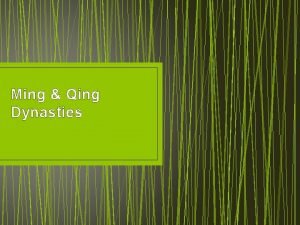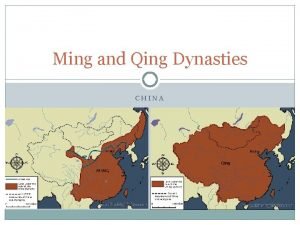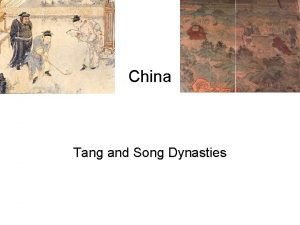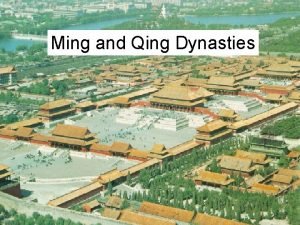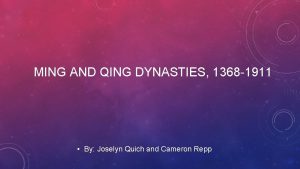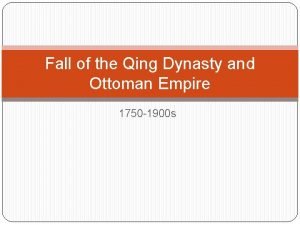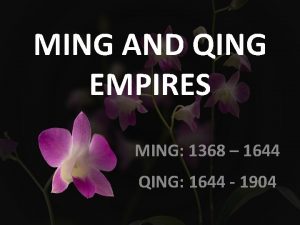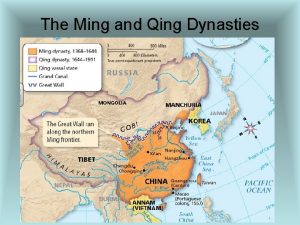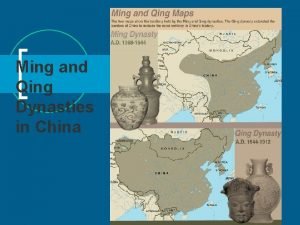MING AND QING DYNASTIES Chad Anderson Sam Erickson







- Slides: 7

MING AND QING DYNASTIES Chad Anderson, Sam Erickson, Isaac Lesco, Eric Lillo

MILITARY • The Ming focused their attention on the protection of the northern border. • Not trusting other countries and isolating themselves from the rest of the world. • The Manchu invaded the north border and conquered China and became the Qing dynasty. • They mostly focused on improving the Great wall of China. • Kept Manchu men in the top positions of the military.

CULTURAL • Ming emperor set out to restore traditional Chinese rule. • Yong Le sponsored a series of great ocean voyages under the command of Admiral Zheng. • Qing Manchus had long been influenced by Chinese culture and adapted many Chinese customs. • They preserved the structure of Ming government and ruled according to the Confucian principals. • They supported the state exam system and allowed Chinese officials to high positions.

ECONOMICS • Zhu Yuanzhang reformed the tax system and distributed land to Chinese peasants. • In Confucian style, they favored agriculture over business. • Trade and commence increased through Ming rulers. • Potatoes and corn from Americas increased food supply. • Zhang He brought back exotic goods and increase tribute to China from voyages.

SOCIAL • Ming made China more active overseas; Chinese explorer Zhang He went on seven voyages from north China to east Africa. • Made lesser kingdoms pay tribute to Ming, reinforcing old idea that China was the center of the universe. • Qing dynasty officially discouraged trade like Confucian tradition said they should. • Qing believed that China had everything they needed, and trade was unnecessary, but still traded for silver from the Americas. • China rejected new ideas in science, technology, and economics that might have helped China become even more powerful.

POLITICAL • Zhu Yuanzhang took power in China around mid 1300's, establishing Ming dynasty. • Ming revived the state examination system, which was used to select leaders for civil service • Emperor also reformed the tax system and distributed land to Chinese peasants. • In 1644 Manchu invaders stormed from the north and established Qing dynasty. • They supported state exam system and allowed Chinese to hold government positions but made sure Qing officials held military power.

REASONS FOR DECLINE • The Ming declined because the government went corrupt, causing rebellion. • Then the Manchu invaded and created the Qing dynasty. • The Qing limited trade from the outside giving them less resources. • This caused the people of China to revolt ending the Qing dynasty.
